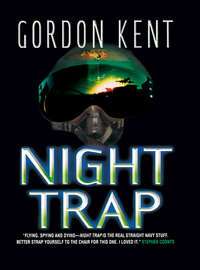
Полная версия
The Spoils of War
5
Washington
Ray Spinner was thinking about a pretty woman named Jennifer when his phone rang and a man named McKinnon asked him if he could step around to his office for a sec, please? That McKinnon had an office was enough to suggest his status; he also had a title; but, most to the point, he could end Spinner’s career with a word.
“Sir.”
McKinnon looked up from a crowded desk. He was fifteen years older than Spinner, infinitely more impressive in Washington terms: eight years in State and then Defense in the Reagan administration, four more in the National Security Council and Defense under Bush One; then exile to an Ivy League professorship during Clinton. He had published two books. His name was never in the media—a contradictory achievement in a media-mad town, but one that had put him where he was, because some specialties require reticence.
“Yeah. Shut the door. Sit down.” He made a point of closing a folder, the point being that he was allowed to see it and Spinner wasn’t. But Spinner had had time to make out “Classified Special” and “PERPETUAL JUSTICE.” Perhaps oddly, “perpetual justice” didn’t sound unusual to him; it sounded like a lot of other code names in those days.
Spinner sat. It was like being back in college, he thought, called into the professor’s office because of a bad paper. McKinnon was balding and thus big-domed, unquestionably an “intellectual.” Spinner found himself sweating. Until then, only his father had been able to make him so nervous.
McKinnon handed a single sheet of paper across the desk. “That yours?”
Spinner had only to look at the From and To. It was the blind copy of the message he’d sent Mike Dukas in Naples about the dead Navy guy in Tel Aviv. Suddenly, the message didn’t seem like a very good idea.
“Well, you see—”
“Is that yours?”
“Unnh—yes. You see—”
McKinnon shut him up merely by hunching his shoulders. His jacket was off, revealing a pair of the red suspenders that Spinner so admired. He also wore one of those baggy shirts that you learn to recognize as expensive. He said, “So what’s the story?”
“I got the initial, uh—” Spinner cleared his throat “—initial data that the person in question—the name is there on my message—”
“Qatib.”
“Right.”
“Arab name.”
“I suppose.”
“No ‘suppose’ about it. You don’t understand Arabic? You don’t know Arab culture?”
“Well, my background—”
“Your background is the Navy; I know all about it. I don’t expect much as a result. You were saying?”
“Unnh—the person—Qatib—died in Israel and because, because he had US connections—studied here, Navy reserve—I checked the Purgatory list. He was on it. So I thought, unnh—” He glanced at McKinnon, whose eyes were fixed on him. “I thought I should pursue it.”
“Good for you! Exactly what you should have done. And?”
Encouraged, Spinner told him about NCIS and the dominion of the Naples office.
“Who is this Michael Dukas?”
Spinner thought of lying and saying he’d picked the name out of a directory, but he suspected that McKinnon already knew who Dukas was. This was a test, he decided. The prof already knew the answers. So Spinner said, “He was a nosy bastard who framed me and forced me to resign my commission.”
McKinnon leaned way back in his chair and inhaled deeply, as if he wanted to smell Spinner’s answer. He tapped a pencil twice on his desk and, without looking at Spinner, said, “So, you saw that we needed more data on Qatib. Good. So you dumped it on somebody you don’t like, and sent it over the title of the deputy assistant. Not good.” He looked at Spinner, a comical expression on his face—mouth rubbery and pulled down at the corners: clown grimace. “C minus.”
They stared at each other until Spinner had to look away. He knew he was about to be fired.
“You’re here because your father has clout,” McKinnon said. “Okay, I can live with that. Believe me, you wouldn’t be here otherwise, because a military background is the last thing we need. Correction: second last; what we need last is somebody with a background in intelligence.” He leaned forward again. “You know what’s wrong with military people?”
Spinner tried to think of all the things he’d found wrong. “They’re dorks?” he said.
McKinnon laughed. Actually laughed. “That’s one way of putting it. They’re mediocre. And they’re tentative. And they’re self-seeking. Ranks, medals, privileges. They’re fucking bureaucrats in fancy clothes, and they’re not smart. They’re timocrats.” He looked to see if Spinner knew what a timocrat is, saw he didn’t, smiled with delight. He stood; Spinner suspected that he was reverting to his academic self, that all he lacked was a blackboard. “There are only so many smart people in the world, and they don’t gravitate to the military; if they get into the military by mistake, they soon get out. Therefore, policy can’t be left to the military. They’re like mechanics—they can fix the car, but they can’t design it.” He leaned back against the wall. “Smart people come here. They come here because we recruit them. We’ve been looking at some of the people here for as long as ten years. Why?”
Spinner knew he wasn’t supposed to answer.
“Because people—ordinary people—can’t run a democracy. You know Plato?”
Spinner clawed back through his undergraduate classes and came up with The Republic.
“Right. The current president of the United States is the modern version of the philosopher-king. He is surrounded with a group of special people. Smart people. They must inform him so he can make wise decisions, and they must keep him from getting wrong information that would harm those decisions. They must also advise him on how to manage information about his decisions so that the people will accept them.”
Despite himself, Spinner frowned. Wasn’t there a contradiction there somewhere?
“To advise wisely, to screen out the false, to manage the true. Do you know who Leo Strauss was?”
Spinner, committed now to the truth, shook his head. McKinnon shook his head in response, as if disgusted, but he grabbed a piece of paper and scribbled on it and shoved it across. “Read Leo Strauss,” it said. Spinner said he’d go right out and get some.
“You won’t understand it, but keep reading. Strauss is—” McKinnon stared off at the bewildering problem of what Strauss is. “Have you read Alan Bloom? No matter. The point I’m trying to make is that there is a deep philosophical basis for what we do here and for the way we do it. You have to keep reminding yourself that we are special people and that we have a special responsibility. This is not just another dickoff government job!” He sat again, wearily, as if his lecture had exhausted him. “I want you to take this Qatib thing and run with it. I’ve got you screening inputs now; I’d have kept you there, frankly, but you went ahead and sent this message and I’m going to see if you’re equal to that act of folly. It’s a test, okay? Let’s be frank. It’s a test. I have a suspicion you can’t cut it at this level, but because of your father, who’s given us good data, and because you lost your Navy job getting data to him, I want to be fair. Open a file on Qatib. Run with it.”
“I didn’t know how much Israel would be—”
McKinnon waved a hand. “Israel’s neither here nor there.” He raised the hand, index finger pointing up. “The big picture. Israel will take care of itself if we fix the big picture. The key to the Middle East is Iraq. You don’t understand that; it took me six years to figure it out. Don’t sentimentalize about Israel.” He looked down at something on his desk, looked up again, said with a quick smile, “Don’t sentimentalize about anything.” McKinnon sighed. He chewed a thumbnail. “Imagine you have to brief the philosopher-king on this Tel Aviv thing. That’s the standard. But don’t bean-count and don’t nitpick. Think policy.” He said nothing for so long that Spinner stood, assuming he was dismissed. McKinnon, however, didn’t look at him but said in a gloomy voice, “The policy is that we will democratize the Middle East by democratizing Iraq, and anybody who gets in our way is an enemy. That includes the military and the State Department and the fucking intelligence establishment.”
Spinner wanted to say that McKinnon had just told him that Israel wasn’t either here or there. Now he seemed to be saying that Israel was either here or there. But was it here? Or there? On that note, with McKinnon staring into a corner, he crept out of the office.
Tel Aviv
An hour after his release, Alan Craik was spent. He had been screaming at Mike Dukas. His voice was hoarse by the time he slammed down the phone, his rage a blast against the friend who had given him the supposedly trivial job that had led to humiliation. He had been snatched off the street like a beginner, held prisoner, shamed. Made helpless.
Then an aide to the Chief of Naval Operations had called, then an assistant secretary of state, then Abe Peretz, and a general from CentCom, and the ambassador to Israel. Their message was that they were behind him and that the wrong that had been done him would be paid for.
His fury at Dukas ran down and became contemptible.
“I lost it,” he said. His face was in his hands. He was sitting, disheveled and sweaty from the day, on the hotel-room bed. “One of my best friends, and I trashed him.”
She sat next to him and hugged his shoulders. “Mike understands. It’s okay.”
“Christ.” He looked at his hands. They were trembling. “What’s the matter with me?”
“You need a rest.”
He was thirty-eight. The face he lifted to her looked older. “What do I do?” he said.
“Call Mike back.”
“I can’t.”
“Apologize. Then work with him to get back at these bastards.” She got up and passed in front of him, and he followed her with agonized eyes as she picked up the telephone and dialed and waited. He heard her speak to somebody in the Naples office and then she held out the phone to him. “Mike,” she said.
He put the instrument to his ear but said nothing. He was listening to his own breathing and perhaps to Dukas’s, as well. Finally, he croaked, “I’m sorry, man.” He was suddenly choked with tears.
“Well, it was an experience.”
“It wasn’t meant for you. It was—”
“Jeez, it sure seemed to have my name on it! You kept calling me Mike and using the word bastard. Sounded like it was for me.”
“I’m sorry, I’m sorry—it’s them, but I can’t get at them—”
“I know, kid, yeah, shit. All is forgiven. Forget it.”
“If I could take it back—”
“You can’t, so forget it. I’m still the guy you’ve slogged through the shit with. The truth is, now you’ve calmed down, I put the phone down for a while and let you rant while I did something else. Anyway, look, you’re right: I sent you into something without checking it out, and you got slammed. It is my fault. So forget it. The real question is, what do we do now?”
“Declare war on Israel?”
“Ho-ho, naughty boy. I suspect the gubmint has about shot its wad, expressing its displeasure in a demarche. What happens from now is what we make happen. So what d’you want to make happen?”
“I want to nail several Israeli skins to the barn door.”
“Okay, but you gotta ID them. You got names?”
“The two ass-kissers who delivered me to the hotel were named Shlomo something and Ziv something. No last names. I don’t know the shmucks who had me in the hotel room, but my guess is they were grunts—dumb, clumsy, a couple of them didn’t even speak English.”
“I need first and last names.”
“They didn’t give last names. Don’t hassle me!”
“Okay, okay! You done good.”
“I want to hit somebody.”
“Don’t. I’ll take over from here.”
“You’re going to follow up?”
“After the chewing-out you gave me? Christ, I’ll have the tooth marks on my ass for life! Actually, I’ve already had the order to pursue ‘with utmost diligence,’ plus State sent a demarche to the Israelis that was the diplomatic equivalent of your blast at me, and it ended with a promise to follow up. That’s my warrant. I’m off to see the wizard as soon as I can clear my desk.”
“You’re coming to Tel Aviv?”
“No way are the Israelis going to fuck me out of a country clearance on this one; they’re too scared. So you leave, I arrive, life goes on.”
Alan gave the telephone a feeble grin. “You’re a good guy, Mike.”
“I’ve ordered up a forensics team. We’ll do a number on the dead guy, Qatib. Who, by the way, was a cryptologist—you know that?”
“You didn’t bother to tell me. Serious business?”
“Maybe. I mean, the Israelis, a former cryptologist, a body—like, they’d be dee-lighted to have our codes.”
“Oh, shit.”
“My favorite expression.”
They talked some more, but mostly they repeated what they’d said. Dukas’s parting words were, “Hang in there, kid.”
And Alan said, “Dov—one of them was named Dov.” That was all he could remember.
When Alan hung up, his hands were still shaking. Rose put her arms around him. He was enraged because he had to go to the embassy next morning to be de-briefed and to get a medical check. She told him it was all routine; everything would be okay. “It’s over. We’re okay. We’re okay.” She held him tighter. “You still going to do your meeting tomorrow?”
“You’re goddam right I am!” He stood. “It’s the reason I came! Not all this fucking Mickey Mouse—” He didn’t say that the clandestine meeting to exchange information with Shin Bet might erase some of the humiliation of the day.
Dukas put the phone down as if he were placing it on a box of eggs. He pushed his lips out, shook his head, then looked up at Dick Triffler.
“That bad?” Triffler said.
“Bad. Wouldn’t you be? I sure would.” He sat back in the desk chair, his weight making the springs groan. “The Tel Aviv cop woman says it was murder. She doesn’t say how, so we need the forensics before we jump to a conclusion; she and Al both say there was torture, too.” He shrugged. “Peretz says the FBI is already on it. I told him to spread the word there that this is our case and everything will come to us, and if it doesn’t, I’m going to scream all the way up to the White House. I talked to Kasser.” Kasser was the head of NCIS, Dukas’s immediate boss. “We’re to make the Qatib case a top priority. It’s what this office is here for until we close it. Okay?” He looked up through thick eyebrows at Triffler. “Craik’s out of it—he’s got some secret thing of his own tomorrow and then he’s outa there. Somebody has to go to Tel Aviv and ram an investigation down the Israelis’ throats.”
“Mike, I just got here. We’re still unpacking boxes!”
“It’s either you or me. That’s direct from Kasser. The one who doesn’t go runs the office. Which do you want?”
Triffler, rarely flustered, looked at his hands and pursed his lips. Dukas thought about it, then said, “Okay, I’ll go. Soonest, Kasser says. Can’t possibly go tomorrow. Saturday?”
“You’ve got the meeting with Italian security at Sixth Fleet Saturday—remember, Saturday’s the only day everybody can make it?” Before Dukas’s well-known contempt for meetings could erupt, he said, “Mike—you called the meeting! You said it was ‘essential to cooperation on matters of joint concern!’”
“Okay, I’ll go Sunday.”
“When are you going to brief me on running the office?”
“Okay, I’ll go Sunday night! Jesus.” Dukas swung forward. He grabbed a yellow pad and a pencil—the computer at his elbow might as well not have existed—and began to write. “I want everything we can get on Salem Qatib. Maybe he was murdered because he was porking somebody’s wife, but Kasser says we gotta know how important it is that he was a cryptologist. You know what it’ll cost if somebody got Navy codes out of him? About a hundred and fifty mil. So we want everything on that—what codes he knew, where he worked, where he studied, who remembers him. I want a detailed bio on him, not the summary. Check with FBI and CIA to see what they got on him. Don’t dick around—remind them of the demarche and who’s driving the bus. Okay?”
“We need to know what was going on in his life in Palestine.”
“Yeah, I’m working on that. Peretz and the policewoman. But listen—” He pointed the pencil at Triffler. “If the policewoman’s right, Mossad killed the guy. That’s a heavy, heavy idea. Rumor to the contrary, they don’t just kill people. Killing’s pretty rare; you need authorization, preparation. Unless it’s a mistake.”
“What does Craik say?”
“He’s too mad to make much sense. FBI’ll de-brief him tomorrow morning, maybe they’ll get more. He’s supposed to get a medical check; that’s got him pissed, too. He got a couple first names of the guys he thinks are Mossad, plus he thought the guys who snatched him were pretty much thugs. Maybe rent-a-goons. They kept talking to him in Hebrew and pushing him around until they looked at his wallet and realized what they had. When somebody showed up who spoke English, he was apparently all over himself explaining that they had mistaken Al for a Tel Aviv cop. Which makes you ask, why were they so ready to snatch a Tel Aviv cop?”
“I’m the one who opens the case file?”
“You bet. Go to it.”
Triffler looked at his watch. It was after seven in the evening. “This is just like working for Mike Dukas,” he said. “I suppose you don’t care that I have choir practice this evening.”
“Choir practice! You just got here!”
“My voice is very much in demand.”
Dukas hunched down over his work. “You can hum ‘Amazing Grace’ while you work. Quietly.”
6
Gaza
A guard, far more courteous than the last pair, took Rashid to a shower, and then to a room with a bed. He heard the guard turn the bolt from the outside, but at least the room was not in the basement, and it had a window on a dusty yard.
The night was cold. He lay with a single thin blanket and shivered, listening to the sound of knocking and ringing in the building’s steam pipes. He was exhausted, but the bile of betrayal—his own, others’, perhaps Salem’s—rolled around his guts. He shivered. His teeth chattered. Eventually, he slept, and in his dreams he ran and ran, while Salem called for help behind him.
Washington
Late in the day, McKinnon astonished Ray Spinner by poking his head into his cubicle and saying, “You’d better read this.”
Spinner saw the word demarche and From and To. He read the whole thing—naval officer, Israeli government with one foot in dogshit, naughty-naughty. It occurred to him that the Qatib business, which he had tried to kick sideways, was suddenly much bigger and much more important than he had thought.
McKinnon was leaning on the carpeted wall. “State’s got its balls in an uproar because Mossad was doing its job, apparently. About this Qatib, so your instincts were right in asking for follow-up. Full Marks. Some Navy guy got his pants caught in the gears, or something. Find out what happened and keep me current. One way or the other, the Qatib thing will expand and make at least a nice little case study.” He handed over another piece of paper. This time, he was grinning.
A reply, Spinner saw, from Dukas direct to the Assistant Secretary—Oh, my God!—with some sort of bureaucratic blahblah-blah. Spinner looked at McKinnon. Was he going to get fired now?
“Questions?” McKinnon said.
“What do I do about Dukas’s message?”
“That’s a dumb question, but you’re allowed one. Tell him to fuck off with the jokes and get you the data. That clear?”
“My pleasure.” So he wasn’t fired. He could feel sweat below his eyes. He tried to smile. McKinnon laughed and slipped out, and Spinner could hear him still laughing as he went up the row of cubicles.
In Israel, that was the day that an elderly man was kidnapped and murdered. The al-Aksa Martyrs Brigade claimed credit. It was also the day that two Palestinians shot into a car, killing an Israeli woman.
7
Gaza
In the morning, a guard took him to wash, and then to the courtyard to pray with other men, all of whom seemed to be guards, not prisoners. He tried very hard to concentrate his mind on the glory of God. After prayer, he ate with them.
Then they took him to an office. Zahirah was there, freshly dressed and made up. She had glossy enlargements of the photos from the flashcard in neat rows on her desk and taped to the wall behind her.
She also had Rashid’s passport and backpack. The presence of those two items on a corner of her desk gave Rashid hope. He sat quietly while she worked away at her computer, typing rapidly, a pencil clenched in her lipsticked mouth; she grabbed the pencil to scribble notes that she pasted to her computer screen.
“Do you want to help us, Rashid?” she asked after ten minutes. “We intend to find out exactly what happened to your friend—to Salem. And then, if it is within our power, to avenge him.”
You were the ones who beat him first! Rashid’s brain was already split in two; half wanted to help the Palestinian Authority, and half viewed that Authority as the enemy of every Palestinian.
“We can help you,” she continued. “If you will help us. Hamas will not help you; they have lost the dig, and all they will care about is the lost money. They cannot go outside of Palestine to ask questions. So they will likely concentrate on you.” She paused for effect. “And on your mother—who we can protect. We can. You can, if you help us.”
Rashid had no loyalty to Hamas; they had paid the bills after the death of his father and brothers, and his mother loved them, but they had shown their true colors when he worked for Salem. He had very little loyalty to Israel; years of Hamas propaganda and experience of Israeli police methods in Acco combined to make Israel more of an enemy than a home. The thought of travel, anything outside the constant war that was all around him, was more tempting than anything he had heard. And the possibility of avenging Salem, even indirectly, might help him deal with the fact that when Salem had needed him, he had run.
Still, he hesitated. Even with nothing to go home to, no job, no future, he still hesitated to commit to the Authority.
Zahirah held up the clearest photo of the slut Saida disporting herself with the gold cup. “Rashid, listen to me, please. This Saida—she has left the country. Yes, we know that. She has gone to Cyprus—perhaps Crete; I’ll know in an hour. I think she has many of these items. I think she intends to sell them on the black market.
He raised his hands. “What would you have me do?” he asked.
Zahirah smiled broadly, showing most of her white, even teeth. “You have a clean Israeli passport. You speak English. You know Saida. We want you to help us find her and bring her back.”
That sounded so appealing that Rashid answered her smile with his own. Excitement began to rise within him. “I think I could do that.”
Zahirah began to make piles of documents atop the photos. She pressed a buzzer under her desk and in answer a young man appeared at her door. She waved to him.
“This is Ali, your keeper. You have much to learn. You will have to leave tonight. The colonel will want to see you before you go.”
Ali wasn’t much older than Rashid—Salem’s age, in fact. He smiled at Rashid, who looked down at the ground to hide his confusion. Then he smiled a little in return.









